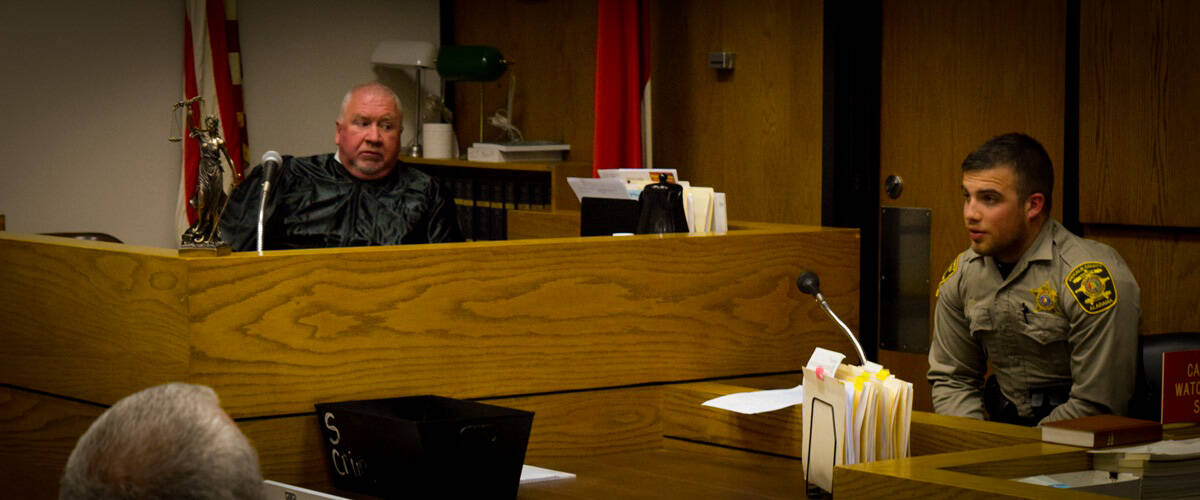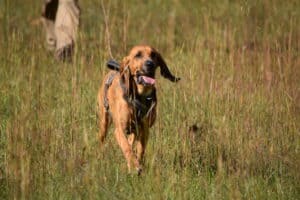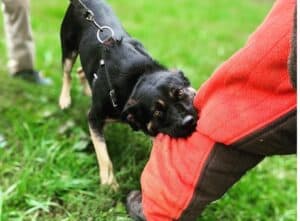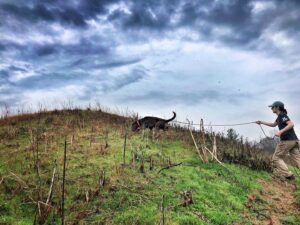Defense attorneys are regularly attending seminars and courses to learn how to effectively attack K9 related cases. They are spending lots of money to improve their abilities to win these cases for several reasons. First, they have learned they can charge a premium if they are skilled in defending K9 related drug cases. Secondly, they have found that successful defense of civil asset forfeiture cases can be lucrative.
Years ago, I had a co-worker who would get horribly nervous on the way to court each month. So much in fact that he would often dry heave and even vomit as he was collecting his evidence to take to court with him. Even after years of testifying in court, it never seemed to get any better for him. Many police dog handlers experience this same feeling to some degree when they must testify in court proceedings. There are several things that we as handlers and trainers can do to ensure success in prosecuting detection related cases in court and relieve some of the anxiety that goes along with it.
One of the first steps to ensuring successful prosecution of canine cases is to fully understand canine related case law. Good k9 handlers are aware of all the court decisions that affect them. I am not suggesting that you be capable of reciting entire canine related cases; however you should understand United States v. Place is the landmark Supreme Court case which decided a canine sniff was not a search, as well as how the more recent Rodriguez v. United States decision affects how you conduct traffic stops. Understanding canine case law makes handlers comfortable in their judgements during traffic stops as well as in other applications where a canine sniff is likely to be conducted. K9 handlers who do not fully understand canine case law will often do one of two things; they will simply do nothing for fear of being incorrect in how they approach an encounter or they make bad decisions and often create spoiled cases or new case law. By understanding previous rulings of the court, K9 handlers make better decisions in the field.
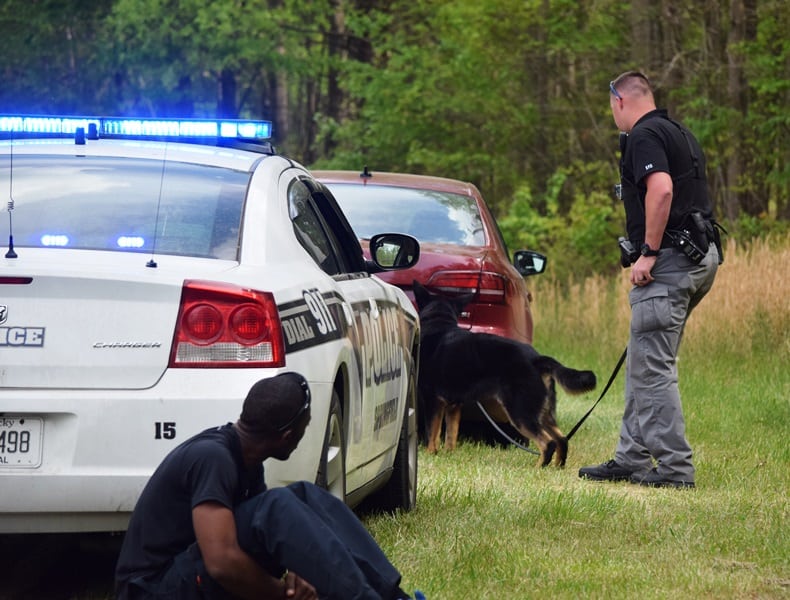
Building an effective program of training is critical to developing and prosecuting K9 related cases. Too often, K9 handlers train daily, weekly or monthly without ever having a plan of action to accomplish certain goals, develop specific challenges or to remedy particular deficiencies. Every training session should have a clear and concise plan. “Hiding drugs on a car and letting the dog find them” is not an effective training plan. To develop good training plans, you will need good training records and reports. These records will quickly show you where deficiencies lie and where the drug detection dog could use more challenging work. It is important to mention that when training with other K9 teams, detection problems that are set up for other dog teams may be too challenging for your dog or they may not be challenging enough. In these circumstances, it may be best to “just sit this one out”. It is important to ensure each training exercise you present to your dog is established in a way to meet the specific goals of your dog.
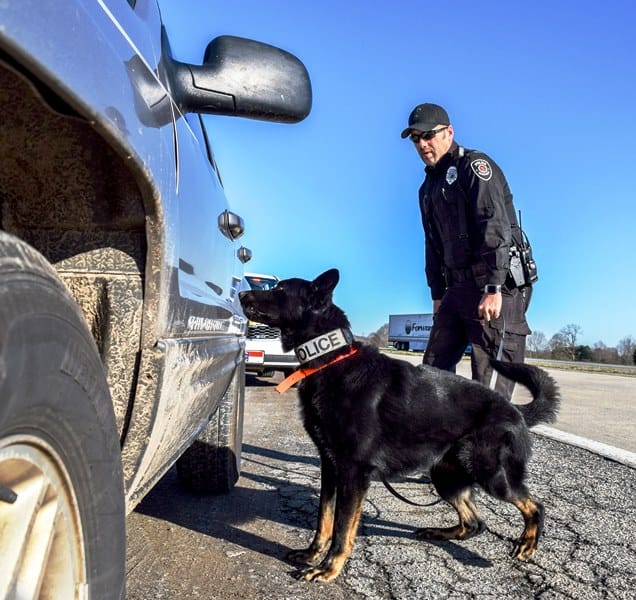
Daily work on the street should be established in a way that it appears to be a “walk in the park” compared to regular training exercises. However, in much of what we see, just the opposite is true as training is usually less difficult than field activities. During your regular training exercises, if you are hitting the “target” every time, meaning you present your dog with a problem and the dog performs it “perfectly”, then you are simply too close to the target and therefore training exercises should be more challenging.
Not only does this type of training not fully prepare the detection dog team to be reliable in the field, it also does not establish a picture for a judge or jury depicting the dog’s training is sufficient to be reliable in field activities. Scenario-based Police K9 training is the most effective way to prepare dog teams for field activities and creates problems that will make more effective teams and handlers that are more confident in their dog’s abilities in the real world. Good handlers will do everything possible to ensure their training is effective and sets up a situation to make prosecuting detection cases simple.
Record keeping is an important part of successful prosecution and is one area where we see that many handlers can do a better job. Often, handlers will put forth a considerable amount of effort in planning and executing elaborate training exercises that challenge their dog’s abilities. Afterwards, they reduce this great training exercise into a few sentences on a training record which truly devalues all the hard work they just did. Be sure to spend enough time creating a record that clearly demonstrates the difficulties the dog faced including distractions, confounds and other pertinent facts about the exercise or application. Records should represent our field activities and training in a way that anyone can read them and have no doubts about what was performed and what the outcome was. Training records should articulate a number of things but most importantly, they should demonstrate a consistent and reliable performance from the dog in a variety of field applications.
When writing records or reports for field activities, remember to review any available video footage to ensure your documentation coincides with the activities as they occurred in real-time. The goal is to avoid getting tripped up about something simple, such as the precise location of an alert, where suspects were located or details of the suspect vehicle, which can ruin an otherwise solid case.
Many prosecuting attorneys simply do not spend a great deal of time studying K9 related cases. They are often inundated with other cases, such as domestic assaults, driving while impaired, larcenies and worthless check cases to the point that they don’t see the need to spend a ton of time studying K9 cases that come along on their dockets occasionally. Handlers must work with your prosecuting attorney to educate them. Print out relevant canine case law and give it to them to review. If they never take the time to review it, at least you did your part. Invite them to attend a demonstration or set up a demonstration specifically for them so they can see your dog work and you can answer any questions they have. Set aside some time to meet with them to create an effective plan-of-action when prosecuting K9 related cases. Provide them with a series of questions they can use in establishing your case regarding training and utilization of your dog. Based on the fact that many prosecutors don’t find K9 cases to be a priority, good handlers will always be prepared to lead the prosecution of their cases.
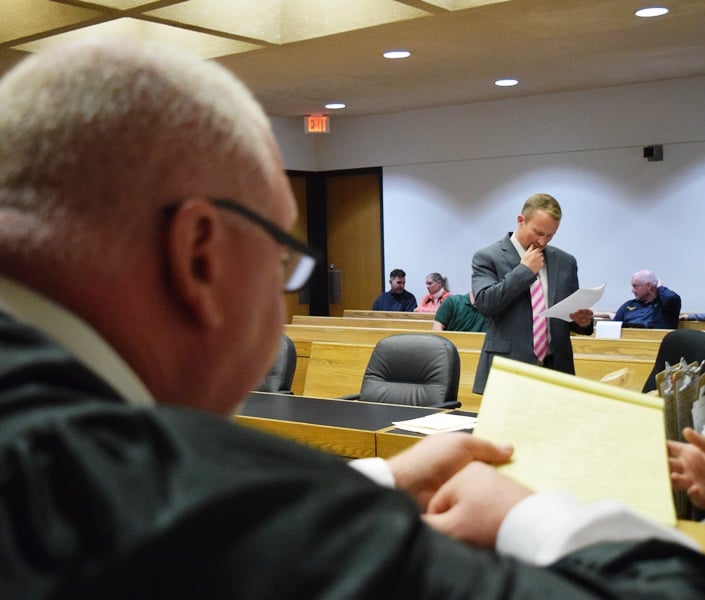
It is important to prepare for upcoming court cases where your dog was deployed. Be sure to review your notes and refresh your recollection of the case. As you did when writing your initial report, review any video footage and evidence pertaining to the case prior to trial. Be sure to make note of relevant K9 decisions that will likely pertain to your specific case and print these cases to provide to your prosecuting attorney prior to trial. Understand the methodologies used to train your dog and be able to effectively articulate your dog’s training and responses when it encounters an imprinted odor. Does your dog sit? Does it simply freeze and stare? What causes these things to happen? Be sure that you have solid answers to other questions that are likely to come up during the case. What caused your encounter with the defendant? What legal justification did you have for this encounter? In addition, you will want to anticipate what questions will likely be posed during cross-examination by the defense. Do you have sound responses to these questions?
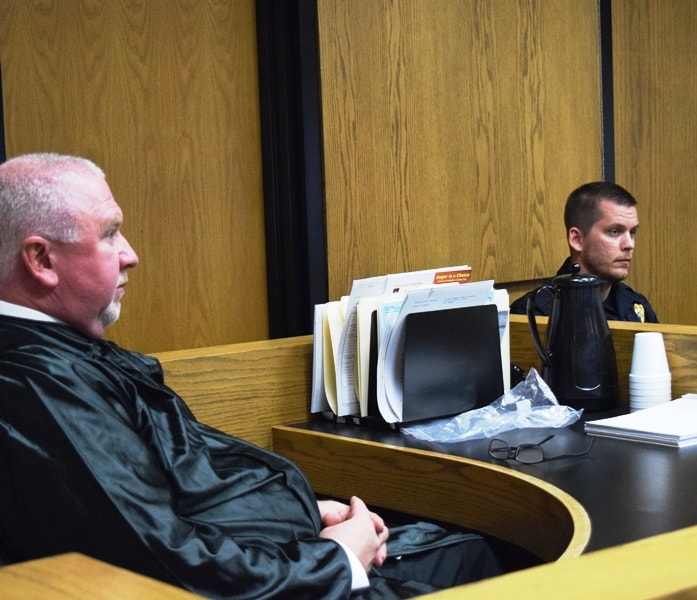
Rarely, if ever, do handlers train to hone their skills in the courtroom prosecuting canine related cases. Like any other aspect of law enforcement operations, it is important to practice in order to become relaxed and proficient in providing effective testimony. I have seen occasions where handlers had solid cases and followed every rule of law, but because of the presentation of their testimony on the stand, they made it unclear as to whether or not they knew what they were doing. As part of our initial training courses for detection dog handlers we set up simulated court to allow them an opportunity to practice providing testimony in detection cases. This is a great learning experience for both new and experienced handlers and provides them with opportunities to testify to real events, in a courtroom, with a prosecutor, defense attorney, judge and other fundamental roles represented. This provides handlers with the opportunities to improve on every aspect of the process including note-taking, responding to questions appropriately and articulating points in a way that will compel juries. Making mistakes in courtroom testimony is common but our goal is to ensure those mistakes are made in practice, where we can learn from them, instead of making them during actual cases where it counts.
As handlers, our job isn’t over until the cases we initiate and develop are successfully prosecuted in court. Prosecuting canine detection cases can be much simpler and less stressful by adhering to some practices which are proven to ensure success. With proper training and preparation we can ensure that our canine cases are presented in a clear and convincing manner and we can create compelling examples for judges and juries without encountering common pitfalls that are currently hindering our success.

